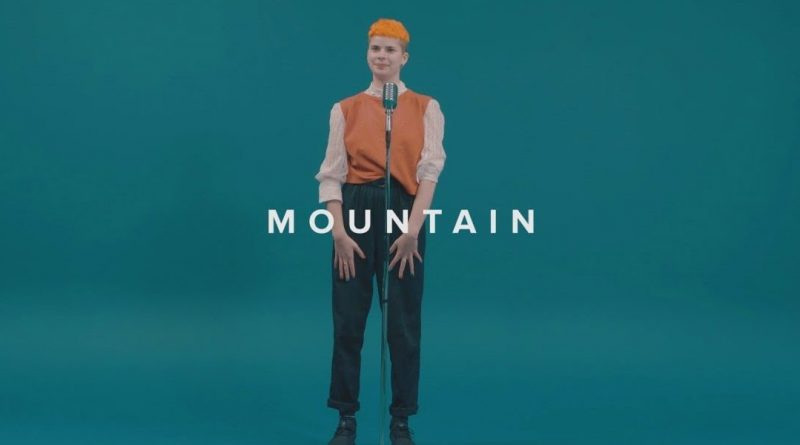Spoken Word Playlist #4: ‘Mountain’ by Jet Sweeney
– Written by Hannah Ledlie –
I suspect Jet Sweeney’s ‘Mountain’ might be a marmite poem.
To test this theory I show it to my parents. My mum says, ‘Hm. I don’t really see the point of it.’ My dad, more positive, says, ‘I’m sure it’s very clever. I’m not sure I knew how it was clever, but I liked the noise… it was interesting.’
I for one love it. The ‘noise’, the ‘cleverness’, the fact it is difficult to ‘see the point’: all of these elements seem carefully calculated and create a truly unique effect. The poem doesn’t just work internally, saying something about itself and its speaker, but externally, telling us something about poetry and the act of writing.
Ostensibly, the poem is about a dream. Sweeney describes in present tense the absurd and hilarious events occurring around them, and perfectly captures the way in which even the strangest dreams can feel entirely logical while they are in progress. The poem’s structure then gradually breaks down. Words insert themselves into the narrative, some acting as kind of punctuation, others repeating a disconcerting number of times. In ‘or get the transport police my charger and the guy looked at me solemnly’, the out of place ‘my charger’ essentially functions as a comma, while contributing to the bizarre sense of dislocation. This disintegration echoes the way dreams often collapse in on themselves as we struggle to continue imbuing them with narrative or meaning.
In the video’s description, we are offered an explanation for the poem’s unusual construction.
‘Mountain’ is a poem made from a cut and paste technique that was first initiated by the Dadaists and later used by William S Burroughs for his novel Naked Lunch. Here, Jet uses their dreams to inform the editorial of their poetry while experimenting with tone, intonation and different speeds.
Jet Sweeney is an artist from Southend on Sea, Essex. They are the winner of the 2017 Roundhouse Poetry Slam, and the lead singer of Swan Pedalo. They create collaborative interdisciplinary performances in arts venues across London and interview members of the public, exhibit sound art and self-publish comics and zines.
I think it might be this interdisciplinary background which makes the piece so strong. Perhaps too often, spoken word which I’ve heard comes across as an unedited stream of consciousness. Occasionally this is effective, but more often than not I find it serves a similar function to a scream: cathartic for the speaker, painful for the listeners. Sweeney demonstrates that spoken word, just like art, music, or literature, can be incredibly precise. Even something as wandering as a dream can be carefully crafted. Techniques from past literary movements can be resurrected in new ways, the exact pitch of every word can be modulated, the length of every pause considered, movements choreographed. Together, this leads to a poem made strong by its intentionality.
Like a dream, you can attempt to interpret ‘Mountain’ as I have, or you can simply enjoy the noise, find it interesting. Both are equally valid.


